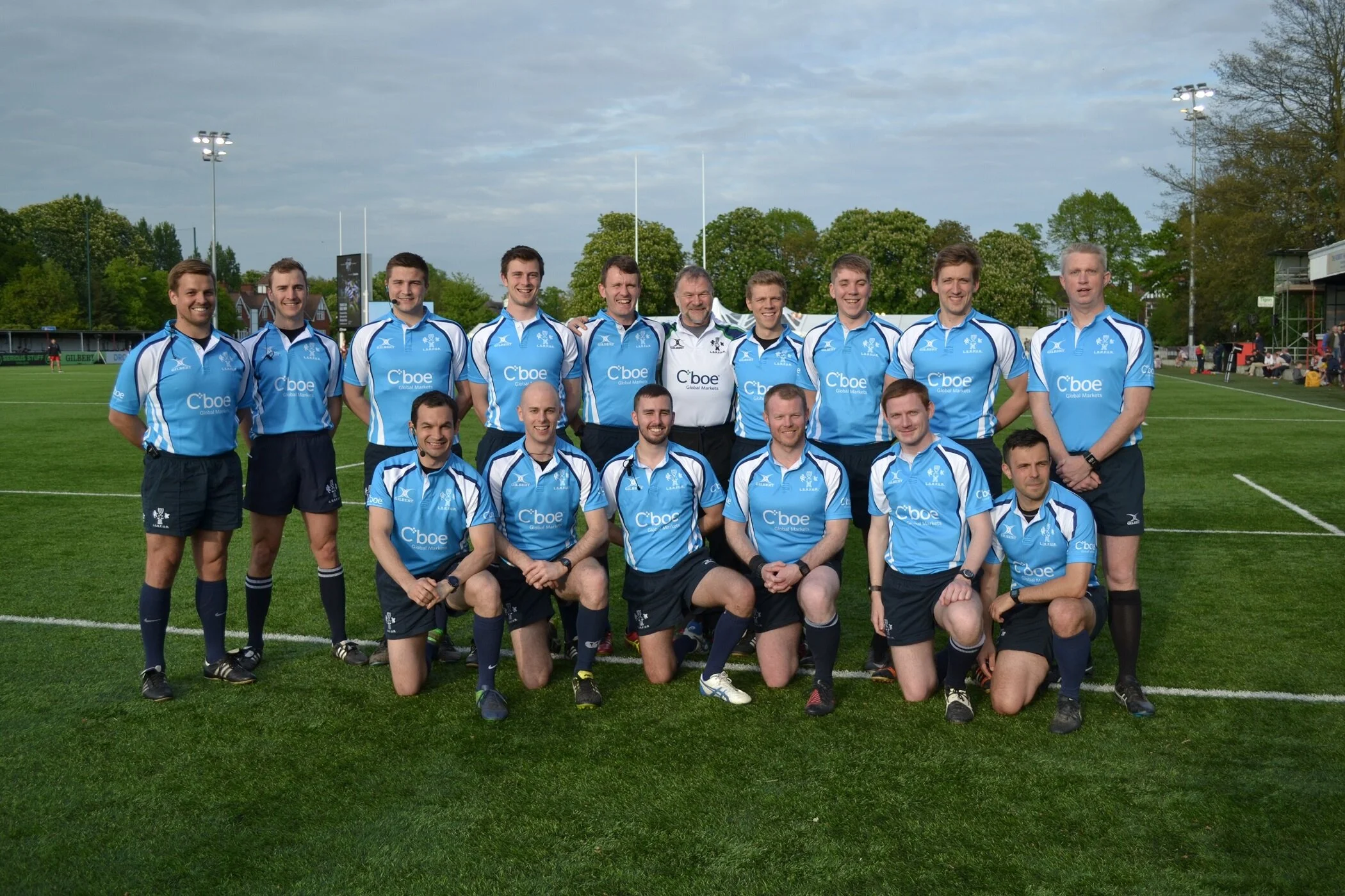Our first LSRFUR Online Learning Webinar - focusing on Referee Communication - took place in early May and it proved to be very successful event, with over 200 attendees. Many thanks again to our host on the evening - Nick Cousins - and to our guest presenters - Joe James and Hamish Grant.
The full recording of the session, including the examples clips discussed, can be viewed via the video player below. In addition, a selection of Questions submitted by attendees - which we were not able to respond to on the night - have been answered by the guest presenters and are shown beneath the session recording.
Based on the feedback received from participants in the post-webinar survey, we are delighted to announce that our next LSRFUR Online Learning Webinar will be taking place on Thursday 18th June with a session topic of Referee Communication - Part 2!
In the upcoming session, the team will be focusing on communication methods and approaches around specific match scenarios, including Team Briefings and Delivery of Escalated Sanctions.
***Full details, including how to register will be shared shortly***
The video content is property of LSRFUR and may not be reproduced without express written permission.
For all enquiries, please contact: website@londondrugby.com
Webinar Q&A’s
How do you flex your communication style to manage different levels of game to get compliance at the breakdown?
JJ: I will tend to speak a little more (not too much!) at lower levels/school games. I probably end up providing more information so as to get the game to flow. I am able to do this as I am used to the speed of the game at a higher level, so have the time to process what is happening on the field and speak accurately and clearly. At higher levels, the players are generally more compliant (not always!) and you want to save your verbal comms for when you really need them.
What would you say is the best bit of advice you've received about effective communication?
HG: Be honest.
Most important body language is exuding confidence even if you make poor decisions players respect a confident ref?
JJ: Certainly positive body language helps us throughout the game.
How many phases would you allow for advantage to be played before blowing for a penalty? is it more time orientated?
HG: Advantage is about one side being able to gain a tactical or territorial gain as a result of the other team's mistake or indiscretion. There are so many variables - ultimately it comes down to reading and feeling the game.
Love the 'less is more approach' for adults - but there is an element of coaching/running commentary when refereeing age group rugby? Agree?
JJ: Agree - kids need a little more information, especially when learning the game still - otherwise it can be a whistle-fest. Materiality becomes even more important too!
How do you deal with repetitive appealing during play?
HG: So the training we did on with the RFU CMOD on Game Values covers this, but in short, its:
1. Ask the player to stop
2. Ask the captain to deal with the player
3. Penalise/walk 10m
4. Further penalties/escalation to Yellow Card
You mentioned not to say sorry, What is your advice to deal with a team offence final warning that ends up being a yellow card recently substituted player? Do we risk loosing empathy with the game / players?
JJ: Ultimately, we need to remember that the game as a whole needs refereeing - the other team will be just as annoyed if you don't YC someone! Remember to that the players/team take responsibility for their actions - its not our fault!
When you have team of three, how would you go about approaching communication amongst your team, as most society appointments are 3 referees and not dedicated ARs?
HG: Firstly, there is AR training (at regional meetings) for our refs. So that should mean that we all have an idea about what we should be doing! From there, I think it is crucial we set expectations really clearly - it's up to the referee to say what they want, how they want it done/communicated to them, and gives the paramters for the AR/Ref to perform in. After that, it's a team effort -but the referee has to lead that team.

